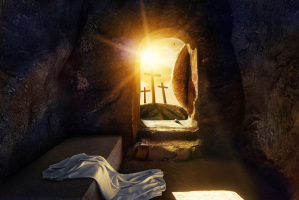Calvinism and free will — it ain’t what you probably think

In a case of “people say the darndest things,” I was looking at some of the comments on my recent article on marriage and saw the following:
“The author is a Calvinist. They don't believe men or women have free will. Calvinists don't believe a man can willfully love his wife, neither can the wife willfully submit to her husband UNLESS God sovereignly forces them both to love and submit to one another … because free will doesn't exist!”
Oh. My. Goodness. Unless the author works for the Babylon Bee, I can only assume he’s serious.
Unfortunately, this flawed caricature of Reformed theology is fairly common and results in believers quickly backpedaling from teaching they don’t understand. The thing is, there’s a good chance that what you think you know about the free will and Calvinism debate is incorrect (assuming you’ve heard of Calvinism in the first place).
That being the case, how about I lend a hand and see if I can clear the air on this topic in the short space I have here?
From the horse’s mouth
Up front, I’ll tell you I opposed and taught against Reformed theology for a long time. But I realized that what I thought I knew about it came from others who misunderstood and contested it, and sometimes went so far as to label it heretical.
Which it isn’t.
In general (and I mean at a high level as there are always endless nuances in Christian teaching), Reformed theology is in agreement with all basic teachings of Christianity including God, Christ, creation, sin, Christ’s sacrifice and resurrection, grace, Jesus’ second coming, and the eternal state. The primary disagreement between Reformed and non-Reformed thinking centers on the subject of soteriology and how God has instrumented His plan of salvation.
As C. S. Lewis says in Mere Christianity, these kinds of conversations “Are not Christianity: they are explanations about how it works.”
Reformed theology is oftentimes labeled Calvinism, but the truth is its doctrines pre-dated Mr. Calvin by at least 1,200 years as Augustine taught the same things. For example, on the free will subject, Augustine maintained that humanity has free will (liberium arbitrium), but through original sin, we lost the liberty towards God that we had prior to the fall.
Which is spot on, biblically speaking.
Augustine aside, given that Calvin is reformed teaching’s most public figurehead, why don’t we look at the free will question by understanding what he said about it?
If you’re so inclined, there’s a 300+ page book he wrote on the subject entitled The Bondage and Liberation of the Will, but let me give you the flyover picture of things.
In his Institutes of the Christian Religion, Calvin addresses the different philosophies of free will by saying: “The schools … [enumerate] three kinds of freedom: the first, a freedom from necessity; the second, a freedom from sin; and the third, a freedom from misery: the first so inherent in man, that he cannot possibly be deprived of it; while through sin the other two have been lost. I willingly admit this distinction, except in so far as it confounds necessity with compulsion.”
Pay special attention to his last statement.
On the question of whether God forces us to [fill in the blank] in a compulsory way, Calvin answers in the negative. Instead, he says we act out of “necessity,” meaning we make choices innately via our nature, which the Bible says is not right when it comes to God.
Calvin goes on to say that “man is not forced to be the servant of sin, while he is, however, ethelodoulos (a voluntary slave); his will being bound by the fetters of sin … Man, when placed under this bondage, [was] deprived not of will, but of soundness of will.” Calvin noted that this fact, supported by Scripture, upsets some who don’t understand the difference between divine determinism and our making choices with a spiritually short-circuited soul: “It does, however, offend those who know not how to distinguish between necessity and compulsion.”
Simply put, compulsion/determinism means our choices are controlled by external forces. Reformed teaching says our choices are indeed determined in that they have a cause, but Calvin maintained that the cause is the inclination of our will. This would be self-determination, which is the very essence of free will.
R. C. Sproul, in his book Willing to Believe, provides a helpful analogy where God is concerned: “God can do nothing but good. This is not because God is subject to compulsion but because He acts according to His own perfect nature. Since it is necessary for God to be good, can we say therefore that He is not free or has no will? Likewise, man sins of necessity and he sins willfully.”
So, Calvin upheld that we have free will, but that it has been marred by sin and when it comes to God, we are “blinder than moles.” This is in perfect agreement with Scripture: “… the mind set on the flesh is hostile toward God; for it does not subject itself to the law of God, for it is not even able to do so” (Rom. 8:7) and “… a natural man does not accept the things of the Spirit of God, for they are foolishness to him; and he cannot understand them, because they are spiritually appraised” (1 Cor. 2:14).
In the end, the Reformed position on free will — especially where salvation is concerned — is summed up well by Dr. James White in his book The Potter’s Freedom: “Reformed Christians believe that people believe and choose. It is the order of events that is in dispute. Every Christian has chosen Christ, believed in Christ, embraced Christ, and even more, continues to do so. The question is not ‘must a person believe,’ but can a person believe while a slave to sin?”
All this said, is there still mystery that envelopes our free will and God’s sovereignty? Yep.
I think we’ll always wrestle on this side of eternity with connecting the dots of Peter’s statement in Acts when he says “… this Man [Jesus], delivered over by the predetermined plan and foreknowledge of God, you nailed to a cross by the hands of godless men and put Him to death” (Acts 2:23).
And that’s OK.
But can we please stop saying Reformed theology teaches we’re puppets and have no self-determination? Because it just doesn’t.
Robin Schumacher is an accomplished software executive and Christian apologist who has written many articles, authored and contributed to several Christian books, appeared on nationally syndicated radio programs, and presented at apologetic events. He holds a BS in Business, Master's in Christian apologetics and a Ph.D. in New Testament. His latest book is, A Confident Faith: Winning people to Christ with the apologetics of the Apostle Paul.



























